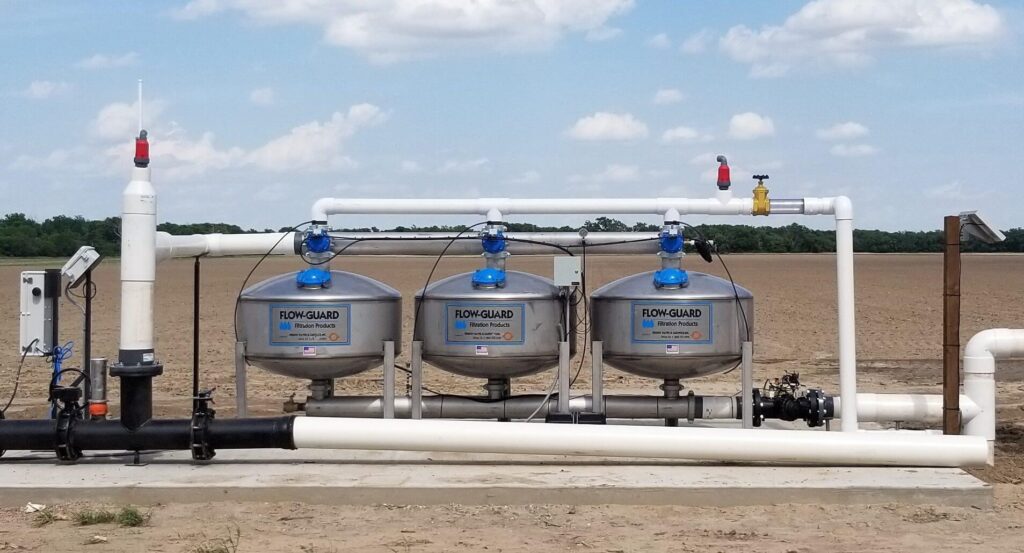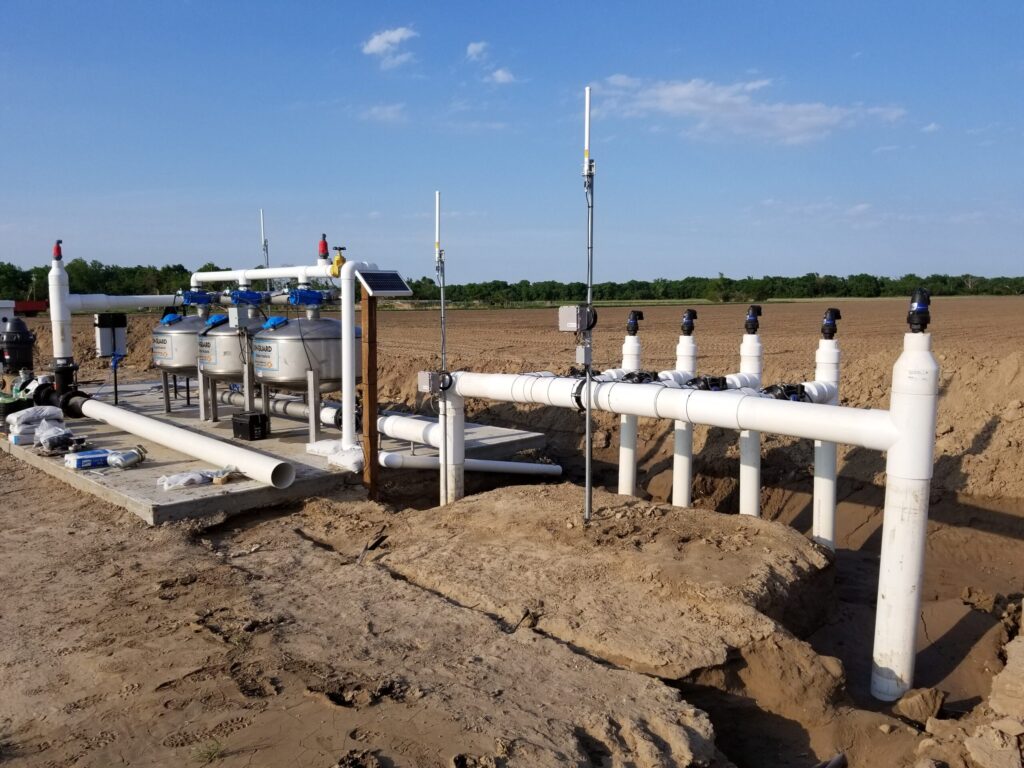Clean Water, Better Crops: The Importance of Agricultural Water Filtration Systems
In the world’s agricultural landscape, water is life. But not just any water – clean water. The importance of water filtration in agriculture cannot be overstated. It is the invisible yet essential ingredient to nurturing thriving crops and maintaining a sustainable agricultural ecosystem. In this comprehensive guide, we will explore why agricultural water filtration systems are more than just tools for remediation; they are pivotal components that ensure the health of crops and, ultimately, the prosperity of the agriculture sector.
Importance of Clean Water in Agriculture
Water is one of the primary components required for plant growth. It serves as a vehicle for delivering essential nutrients and minerals to plants, allowing them to grow and thrive. However, not all water sources are equal in quality. In fact, many agricultural water sources contain high levels of sediments, chemicals, and other contaminants that can harm crops.
Without proper filtration systems in place, these contaminants can accumulate in the soil and cause damage to crops. They may also affect the quality of produce, making it unfit for consumption or sale. In some cases, contaminated water can even lead to the spread of disease among plants.
In addition, agricultural water filtration systems are crucial for conserving water resources. By removing impurities from water sources, these systems help reduce the amount of water needed for irrigation, making agriculture more sustainable and environmentally friendly.

Types of Agricultural Water Filtration Systems
There are several types of agricultural water filtration systems, each designed to address specific contaminants and water quality issues faced by farmers. The most common include:
- Screen Filters: These are simple, yet effective, in removing larger particulate matter from water, such as leaves, sediment, and organic material.
- Media Filters: Using layers of sand or other granular materials, media filters excel at removing smaller particles and some chemical impurities, improving the clarity and quality of water for irrigation.
- Disk Filters: Similar to screen filters but with enhanced filtration capabilities, disk filters trap and remove finer particles using stacks of thin, grooved disks.
- Centrifugal Filters: Utilizing the principle of centrifugal force, these filters separate sand and other heavy particles from water, making them especially useful in areas with high sediment in water sources.
- Reverse Osmosis Systems: For dealing with a broad range of contaminants, including salts, bacteria, and specific chemicals, reverse osmosis systems push water through a semipermeable membrane, offering the highest filtration level.
Each system has its unique advantages and is selected based on the specific water quality challenges, water source, and crop needs of an agricultural operation.
Benefits of Implementing Water Filtration Systems
Implementing agricultural water filtration systems comes with an array of benefits critical for both the short-term and long-term success of farming operations. Firstly, these systems significantly enhance the quality of water used for irrigation, ensuring that crops receive clean, contaminant-free water. This translates into healthier crops, higher yields, and improved product quality, which can increase marketability and profitability for farmers.
Secondly, filtration systems play a vital role in promoting sustainable agricultural practices by reducing water waste. By eliminating impurities that can clog irrigation systems, these systems ensure more efficient water use, contributing to the conservation of precious water resources. This efficiency not only reduces the environmental footprint of farming operations but also can lead to significant cost savings in water usage over time.
Furthermore, by minimizing the risk of crop diseases and contamination spread through water, water filtration systems enhance farm biosecurity. This can save farmers from potential losses due to crop failures and reduce the need for chemical interventions, such as pesticides, which can have their own environmental and health implications.
In essence, investing in an appropriate water filtration system is an investment in the future of an agricultural operation, ensuring its resilience, sustainability, and profitability in an increasingly competitive market.
Factors to Consider When Choosing a Water Filtration System
Choosing the right agricultural water filtration system involves several key considerations to ensure it meets the specific needs of your farming operation. It’s essential to evaluate the water source, type and severity of contamination, and the water volume needed for irrigation. Understanding these factors will guide you in selecting a system that not only efficiently removes contaminants but also operates effectively within your existing agricultural infrastructure.
- Water Source and Quality: Knowing the characteristics of your water source is crucial. Surface water from rivers or lakes and groundwater from wells have different contamination profiles. Testing water quality for sediments, organic matter, chemicals, and pathogens is a critical first step.
- Type of Crops Grown: Different crops have varying sensitivity to water quality. High-value crops might require higher quality water, making advanced filtration systems like reverse osmosis more necessary.
- Water Flow Rate and Volume Requirements: The size of the filtration system should match your irrigation needs. High flow rates might require larger or multiple filtration units to ensure water is filtered efficiently without reducing irrigation effectiveness.
- Maintenance and Operational Costs: Consider the long-term costs associated with the system, including maintenance, replacement parts, and energy consumption. An initially more expensive system might offer savings over time through lower operational costs.
- Local Environmental Regulations: Ensure the chosen filtration system complies with local agricultural water use and discharge regulations. Non-compliance can result in fines and legal challenges.
These factors underscore the importance of thorough research and possibly consultation with water filtration experts or agricultural extension services to make an informed decision that optimizes crop health, water conservation, and overall farming sustainability.
Challenges and Solutions in Implementing Water Filtration Systems in Agriculture
While the advantages of integrating water filtration systems in agriculture are evident, several challenges may arise during their implementation. Understanding these hurdles and identifying effective solutions is crucial for successful adoption.
Initial Investment Costs
- Challenge: The primary barrier for many farms, especially small to medium-sized operations, is the substantial initial investment required for high-quality water filtration systems. This cost can be particularly daunting when profitability margins are already thin.
- Solution: To address this, farmers can seek governmental grants, subsidies, or low-interest loans designed to support sustainable agricultural practices. Additionally, some manufacturers offer leasing options or payment plans that spread the financial burden over time, making the technology more accessible.

Technical Complexity
- Challenge: The installation and maintenance of advanced water filtration systems can be technically complex, requiring specific expertise that may not be readily available on a farm.
- Solution: Manufacturers and suppliers of water filtration systems should offer comprehensive training and support services. Hiring or consulting with an agricultural engineer or water management expert can also provide the necessary technical guidance and ensure that systems are correctly integrated into existing operations.
Water Usage Regulations
- Challenge: Navigating local and regional water usage and discharge regulations can be complicated and may limit the implementation of certain types of water filtration systems.
- Solution: Early consultation with local environmental authorities and agricultural extension services can help farmers understand the regulatory landscape and choose systems that are compliant while meeting their irrigation needs. In some cases, demonstrating the environmental benefits of the chosen system can facilitate regulatory approvals or exemptions.
Adapting to Variable Water Quality
- Challenge: Water quality can vary significantly over time due to seasonal changes, agricultural runoff, or industrial activities, which may affect the efficiency of the filtration system.
- Solution: Implementing a monitoring system that regularly tests water quality can help farmers adjust their filtration process in real-time, ensuring consistent water quality for irrigation. Some modern filtration systems come equipped with sensors and automatic adjustment capabilities to adapt to changes in water quality seamlessly.
In conclusion, while the challenges of implementing water filtration systems in agriculture can be substantial, they are not insurmountable. With thoughtful planning, leveraging available financial and technical resources, and investing in adaptable technology, farmers can overcome these hurdles. By doing so, they not only enhance their operation’s sustainability and efficiency but also contribute positively to the broader environmental landscape.
